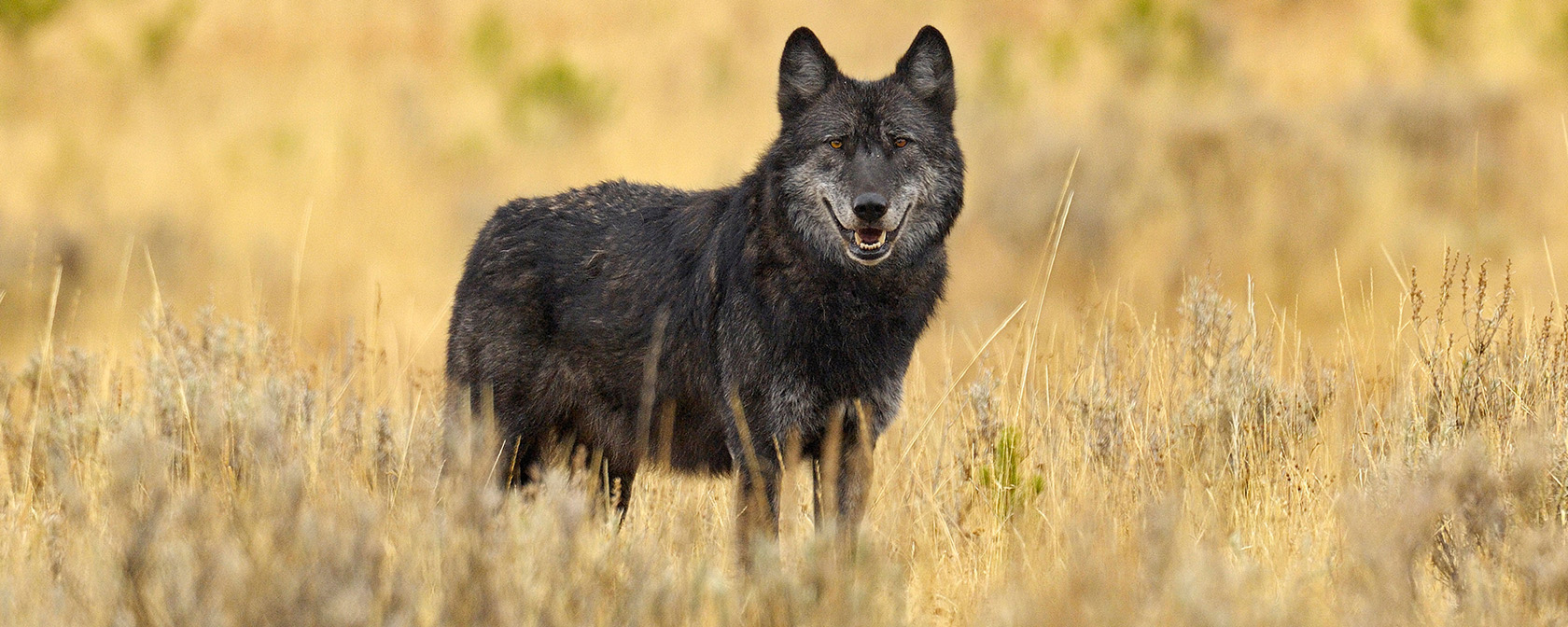By Sara Amundson and Kitty Block
In a victory for wolves, the U.S. Fish and Wildlife Service recently denied two petitions filed by trophy hunting organizations aimed at removing federal Endangered Species Act protections for wolves in the Western Great Lakes region and reducing or removing protections for wolves in other areas of the lower 48 states.
Wolves (outside of the Northern Rocky Mountain region) remain safely protected—at least for now. But the attempt to remove their protections continues, and it is multipronged: We are still in court fighting the Fish and Wildlife Service’s most recent attempt to delist wolves nationwide, a policy the agency is trying to reinstate through a meritless appeal. And we’ve brought a separate lawsuit seeking to restore desperately needed protections to wolves in the Northern Rocky Mountains, where they face extreme levels of state-sponsored killing.
Under the critical safeguards of the Endangered Species Act, wolves have made encouraging progress. Yet, the species remains absent from most of its historic range, including vast swaths of currently suitable habitat. Additionally, the Endangered Species Act does not consider population numbers in isolation—the Fish and Wildlife Service must also take account of factors such as threats to habitat, the inadequacy of existing rules and regulations and other threats.
And wolves are indeed facing many threats. Even with the federal protections in place, in some ranges with wolf populations, the motto of “shoot, shovel and shut up” can be seen on bumper stickers and window signs, showing that old hatreds persist. Last summer, in a particularly horrific example, a wolf was deliberately struck with a snowmobile and tormented in a bar in Wyoming before being shot to death, sparking public outcry.
Poaching is a leading cause of death for many large carnivores, including wolves. The Fish and Wildlife Service recently announced that the father of the Copper Creek wolf pack, Colorado’s first wolf family established by reintroduced wolves, had been illegally shot prior to his death. Another wolf was poached in Oregon just before the end of the year, at least the fifth poached in the state in 2024. And these are just some of the cases that we know of. The vast majority of poaching cases go undetected. Studies show that reducing or removing protections for wolves through policy changes can increase this illicit activity, likely because such changes signal an increased acceptability of killing to would-be poachers.
In the policy realm, wolves are subject to a raft of threats from decision-makers, even in areas where they are federally protected. Each year, we battle bills in Minnesota aimed at mandating a wolf trophy hunting and trapping season if wolves lose their Endangered Species Act protections—and in one shocking 2024 bill proposal, even if they do not. Such a mandatory wolf hunt law is what led to a devastating killing season in Wisconsin in February 2021, when more than 200 wolves were killed in less than 60 hours, most through the use of packs of dogs. We must also frequently fight bills aimed at instituting numerical limits on the number of wolves who can exist in a state or making it easier to kill wolves in response to conflicts with domesticated animals. Congressional bills also take aim at wolves, with one such bill introduced earlier this month.
Removing federal protections for wolves almost always leads to an immediate push for trophy hunting and trapping seasons. In Idaho, Montana and Wyoming, where wolves lost their federal protections years ago, horrific methods are employed to kill wolves by the hundreds each year. We’re currently fighting in court for critical federal protections for these wolves before it’s too late. Killing just one wolf can tear wolf families apart and create social chaos that causes more death, increases conflicts with humans and reduces the ability of wolves to disperse to new areas.
So, while we are absolutely celebrating this win, we also know our broader fight for wolves is far from over. We must always ensure that the protection of wolves is top of mind for decision-makers in the states where they live and at the federal level. Take action to protect wolves and other wild animals.
Kitty Block is CEO of the Humane Society of the United States.




